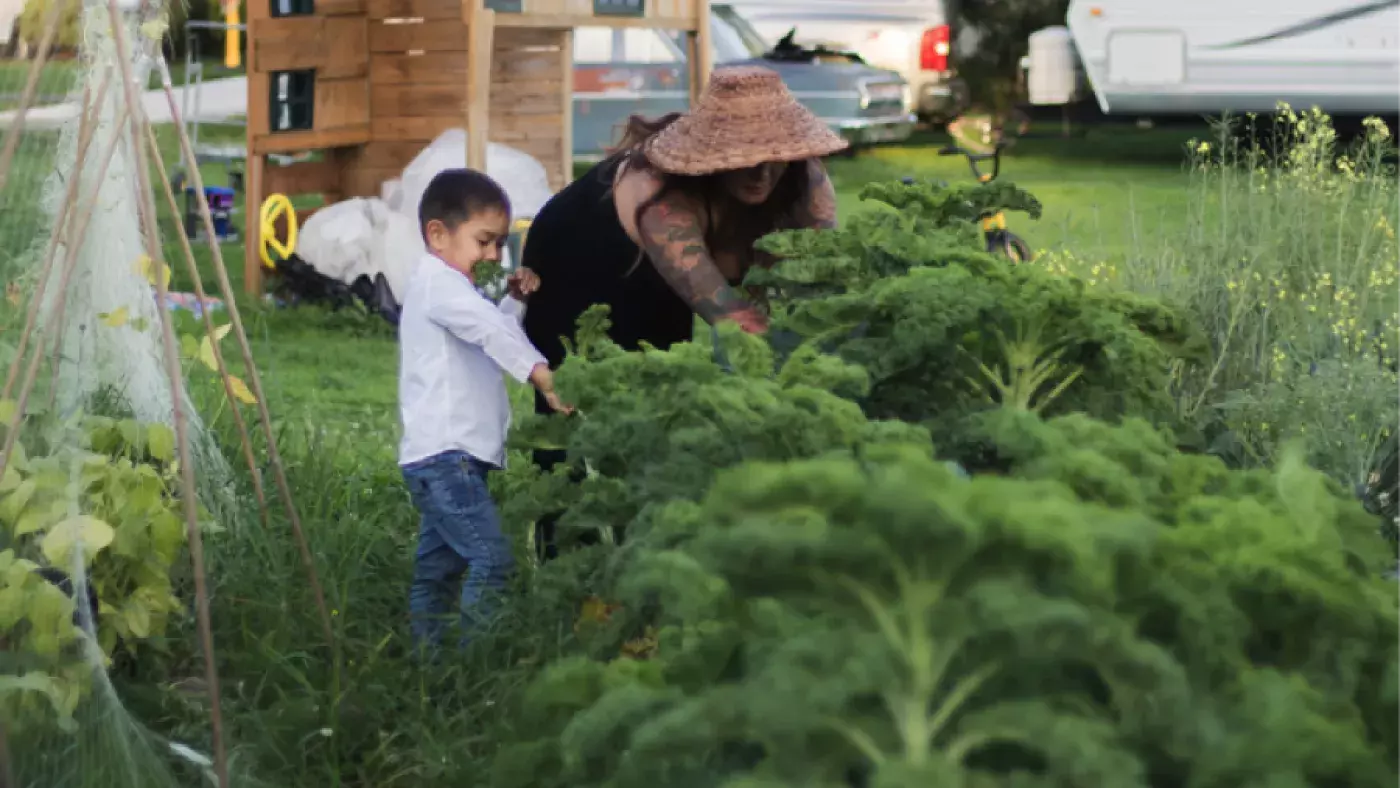

In British Columbia, food insecurity rates exceed 9% of the population and egregiously impact First Nation communities. The resulting burden of diet related diseases also disproportionately impacts First Nation communities. At ISFS, we strongly believe that any efforts to address individual diet quality needs to take a food-systems approach with multilevel strategies for addressing health risks and disparities.
Fostering a Healthy Food System for Vulnerable Families: The Farm to Healthy Communities Project
Project objectives: This project is a culmination of years of relationship building with First Nation and other vulnerable communities across BC. Key objectives are to:
- Develop, test and implement a produce delivery model from local farms to at-risk families
- Inform and train a new generation of community-focused farmers
- Create meaningful linkages between local food producers and consumers, restoring community connections to land, food and health
These objectives were achieved through a partnership-based approach in collaboration with Stó:lō Nation (Chilliwack), Tsleil-Waututh First Nation (North Vancouver) and Kekinow Native Housing (Surrey). Project outcomes provide a framework to understand how food system conditions interplay with community health and development, and establish pathways to utilize these as social innovation avenues to reduce health disparities. We propose an innovative approach to bridge systemic and individual-level challenges of our failing food system (food supply, accessibility, nutritional quality, and affordability) and to demonstrate the impact of improved access to nutritious foods.
Program design: Program design is based on a participatory approach, generating meaningful connections between community members, farmers, community partners and other stakeholders. This research integrates concepts of food production, land stewardship, community development, community health and economic development – concepts that are often approached in isolation.
We are using a 2 group study design where each group receives a monetarily equivalent program. The current study design reflects our initial community and stakeholder consultations. Instead of assigning participants to groups on a randomized basis, which is a common scientific approach, we will offer participants the choice to select their group on a first come first serve basis. Historically government programs and research has often been paternalistic, giving people the choice of group allows them to sign up for a treatment that works best for their current lifestyle and time commitments. The 2 program options are ‘Weekly Vegetable box’ or a monetarily equivalent ‘Grocery store credit’.
Program updates:
- Program delivery ran for the growing season of 2019. The model was adapted to fit the needs of each of the communities, with a mix of pick up or delivery across the 3 communities.
We have a mix of qualitative and quantitative data that was collected at the beginning of the program, ongoing and at the end of the program.
Ongoing data was originally in a question-answer format. Participants, however, preferred narrative check-ins that allowed them to share their stories and experiences.
Impact of COVID-19
COVID-19 pandemic has further highlighted the need to strengthen food self-reliance and self-determination for Indigenous peoples (and other vulnerable communities) as we transition to a post-pandemic economy and society. Our knowledge mobilization and wrap up activities were put on pause, however we managed to find additional funding to continue to support our communities through these challenging times by offering them produce boxes and gift cards through the 2020 growing season. This was not a part of the original project and was not designed to collect research data, we will be sharing testimonials from participants here.
Program Outcomes:
The research program will be contributing to new knowledge on how to design local food systems that meet the needs of the community of which it serves, and is inclusive of its most vulnerable populations. Throughout the project, we recruited and worked with local community members and students thereby increasing the community capacity for research as well as food production with a long term goal of food self reliance.
Another key dimension of the Canadian food system was supported through this project – training of new farmers that are community focused. The new entrant farm staff received ongoing business management and technical support from our experts all while creating meaningful linkages between local food producers and consumers, restoring community connections to land, food and health.
We tracked primary outcomes such as dietary change, program adherence and health data. Secondary outcomes from this project will throw light on the economics of food production and investment in preventive programs versus the economics of healthcare. We hope to leave the communities with a database of health metrics to be used for and by the community. Our research team is currently analyzing the data.
Video Resources:
With the goal of testing a farm-to-household model that links and supports small-scale farmers to First Nation communities in BC, we hope to remove barriers preventing access to and utilization of fresh, locally produced food through this project. We learned that the desire to support sustainably grown local organic produce was overwhelming, although participants indicated that they could use help with knowledge and education on how to use this seasonal produce. Based on this feedback we developed a series of "How to" videos in the hopes that this will make cooking with these vegetables easier and more accessible for others.
Through our on-going engagement with small-scale farmers, we learned that getting started is the hardest part of their journey especially for female farmers. Based on this, we gathered and interviewed three new entrant female farmers to share their struggles and successes.
Funding Support: This research has been approved by KPU's research ethics board and funded by the Natural Sciences and Engineering Research Council of Canada (NSERC) and the Canadian Institute of Health Research (CIHR) through the College and Community Social Innovation Fund.